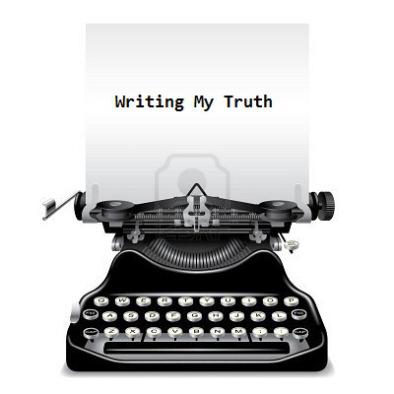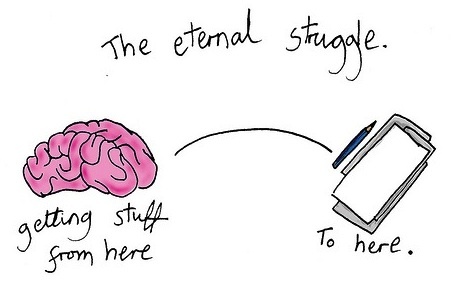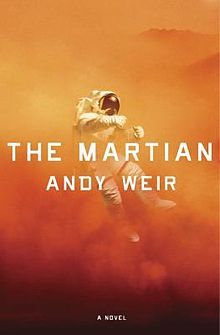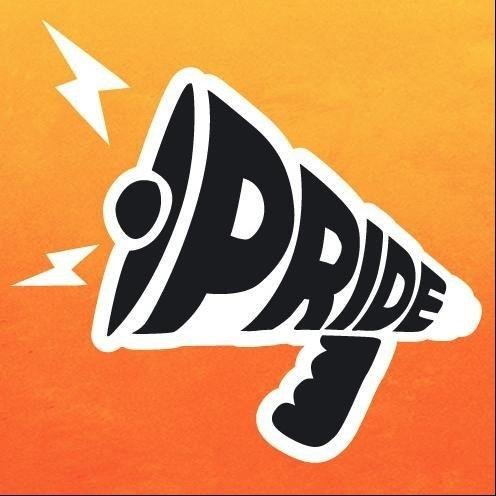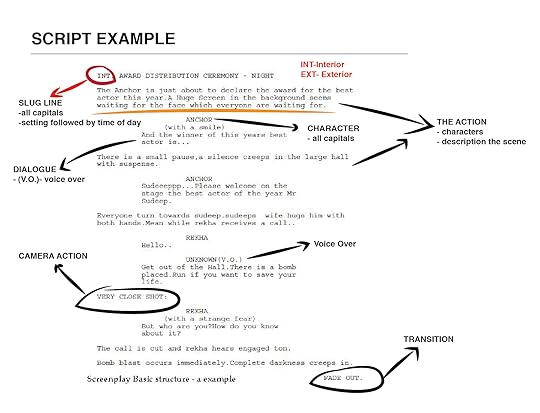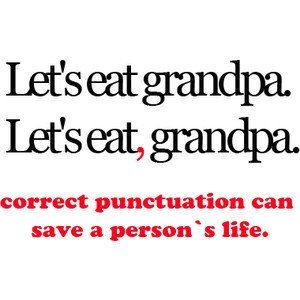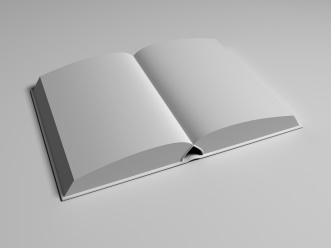Richard Harris's Blog, page 54
October 11, 2015
Everyone Lies about Writing (Part II): No, Thank You
In my last post, I included a quote from Amy Poehler’s book Yes Please about the writing process. In her preface, Ms. Poehler brought out that universal broom for the ages, the everyone broom that seems to sweep the entire population of mankind into a single category. We all do it from time to time in conversation, though mostly as innocuous hyperbole: “Everyone knows who President Obama is.” Actually, not true. “Everyone loves chocolate.” Definitely not true. “Everyone loves Raymond!” Okay, now you’re just being balmy, slightly dippy, and most definitely inane.
For this post, I would like to scratch the whole “everyone” thing and instead offer my thoughts based on my own experience as a writer over the last 15 years, tempered with the sage wisdom of writers far more deft at the craft than myself and who have had some thought-provoking thoughts on the subject over the years.
Ms. Poehler wrote in her preface “[Writers] perpetuate a romantic idea that writing is some beautiful experience that takes place in an architectural room filled with leather novels and chai tea.” While that is true for some people, I would like to counter with what Ernest Hemingway once said, something I believe in far more:
There is nothing to writing. All you do is sit down at a typewriter and bleed.
Forgive the disturbing metaphor, but meaningful writing is a spiritual enema. It is a holistic process to those who practice the craft out of necessity and love – the emotional oxygen by which the soul blooms – and not for reasons concerning money, fame, anger or boredom.
Ms. Poehler then wrote, “[Writing this book] has been like hacking away at a freezer with a screwdriver.” I can most certainly relate to this sentiment. There have been moments in my own experience, especially in the editing process, when you seem to go over the same page or the same sentence over and over until you want to tear your face off and self-immolate before jumping off a building into a field of broken glass. Okay, maybe not that bad, but it can suck the bag big time.
That being said, I will once again turn the floor over to someone who said it much better than I could. As Sylvia Plath wrote in her Unabridged Journals:
Everything in life is writable about if you have the outgoing guts to do it, and the imagination to improvise. The worst enemy to creativity is self-doubt.
So true. How often do we complain as writers before we even attempt the challenge of getting down a story or reworking a chapter or listening prudently to constructive advice? Sadly, I, for one, am guilty of this. But as funny as Ms. Poehler’s simile is, the situation has to be approached not with a screwdriver but with several kilograms of that wonderful fairy dust called patience if you’re to make the story come out in Dolby. That may sound flighty and exactly what Ms. Poehler was referring to when she said writers romanticize the process or make it into something “mighty and macho,” but it’s a simple truth. You need time to examine, re-examine, and then re-examine what has just been looked over 20 times. You need to discover beauty for beauty’s sake, or as Oscar Wilde once mused:
Those who find ugly meanings in beautiful things are corrupt without being charming. This is a fault. Those who find beautiful meanings in beautiful things are the cultivated. For these there is hope. They are the elect to whom beautiful things mean only Beauty. There is no such thing as a moral or an immoral book. Books are well written, or badly written. That is all.
You need to keep things simple. You need to avoid adverbs whenever possible. You need to use the active verb tense over the passive and you need to show, not tell, your readers what you’re trying to get across. Or, as Chekhov once famously wrote:
Don’t tell me the moon is shining; show me the glint of light on broken glass.
And for those who write novels, you have to realize what Stephen King has long known:
Fiction is the truth inside the lie.
But most of all, beyond any metaphor or simile you can come up with, if you’re going to write well you have to write because you love it, because your soul hemorrhages when you don’t have the craft as an outlet, and because you miss the other half of your soul which Plato said was separated at birth and which you only find when you sit down to produce the written word.
Ms. Poehler stated that writing “…is a small, slow crawl to the finish line.” Indeed it is. However, there is nothing or no one to say that is a bad thing in and of itself. Reading a great book is also a small, slow crawl to the finish line, but I, for one, love that.
I’m currently reading Anthony Doerr’s All the Light We Cannot See and I’ve been reading it for what feels like the length of a war. Some nights I read only two pages. And that’s okay because it’s not a race. The writing is exquisite and the story is captivating. I imagine it took Mr. Doerr quite a long time to research and write and edit the book, but every word he has chosen, every chapter he was penned, sings off the page with a harmony that makes the “small, slow crawl” so worth it, most definitely as a reader, and – I hope – for the writer himself.


October 8, 2015
Everyone Lies about Writing (Part I)
The following excerpt from Amy Poehler, in the preface to her book Yes Please, has been making the rounds in online forums and Facebook posts recently. At the very least, I think it worthy of discussion, but will post my own thoughts tomorrow.
Everyone lies about writing. They lie about how easy it is or how hard it was. They perpetuate a romantic idea that writing is some beautiful experience that takes place in an architectural room filled with leather novels and chai tea. They talk about their ‘morning ritual’ and how they ‘dress for writing’ and the cabin in Big Sur where they go to ‘be alone’–blah blah blah. No one tells the truth about writing a book. Authors pretend their stories were always shiny and perfect and just waiting to be written. The truth is, writing is this: hard and boring and occasionally great but usually not. Even I have lied about writing. I have told people that writing this book has been like brushing away dirt from a fossil. What a load of shit. It has been like hacking away at a freezer with a screwdriver.
Most authors liken the struggle of writing to something mighty and macho, like wrestling a bear. Writing a book is nothing like that. It is a small, slow crawl to the finish line.


October 7, 2015
A Martian Inspiration
By now, most people will have heard of a film called The Martian. They will also know that Matt Damon is the star. They may even know that Ridley Scott directed it. But ask these same people who Andy Weir is, and just as many might scratch their space helmet in confusion.
As it turns out, Andy Weir is the author of the novel The Martian, the basis for the blockbuster that made more money in its opening day than Andy Weir will ever see in his lifetime.
That’s not the interesting part, though. This past weekend I saw an interview with Andy Weir on TV and aside from being a really down-to-earth guy, his story is one that writers like me (and millions of other writers like me) dream of happening one day.
Andy Weir was a computer programmer by day. By night, he’d sit in front of his keyboard and pound away at the keys in a field he was passionate about: science fiction. He started The Martian in 2009. Two years later he was trying to sell his manuscript to literary agents. Weir did not succeed. He was turned down across the board.
However, this didn’t stop him from pursuing his goal. Although he continued going to work to earn an honest day’s paycheque, he didn’t relent with his dream to publish his sacred baby, and decided to publish it for free online, one chapter at a time. Readers became excited. He grew a fan base. In fact, his fans demanded he publish the whole story as an ebook on Kindle when all was said and done. And Weir did exactly that, selling it for 99 cents.
He immediately shot up to No. 1 on Amazon’s science fiction bestseller list.
Only then did publishers start to take note of the same novel which had been turned down by literary agents just two years ago, and in 2013 Weir signed a publishing contract worth a cool $100,000. According to Weir, the movie rights would be optioned four days later.
Then, a year later, on March 2, 2014, the hardcover version of The Martian came out in print form and debuted on the New York Times Best Seller List in the hardcover fiction category at No. 12.
From zero to sci-fi hero in four short years. Not bad.
So for every writer out there slogging away in the trenches of obscurity and a full-time job, let Andy Weir’s story be the inspiration, the rocket fuel, if you will, to keep going until you reach the next plateau.


October 4, 2015
A Father’s Son: The Screenplay
In A Father’s Son, the hero’s father, Rick Maloney, says:
There is nothing in this world as breathtakingly miraculous and poignant as a father’s pride in and of his son. Despite my shortcomings as a parent, Justin, not a day goes by that I don’t acknowledge my good fortune, and feel eternally grateful for being the luckiest father in the world.
Well, it is with great pride that I announce the launch of my newest page on this site, Screenplays, where you can actually download a PDF version of the screenplay. Producers, executives and investors, feel free to contact me if you’d like to see a full version of the screenplay and make movie magic together.


September 19, 2015
Writing a Screenplay
I’ve just finished my first screenplay (cue the applause, please). After penning numerous books, articles, and novels, I can say that this was unequivocally the most taxing job in terms of the technical aspect, as may be gleaned by the picture above. Unlike non-fiction, which requires hours of research, or journalistic writing, which requires hours of transcription, putting together a screenplay is most definitely a pain in the ass when it comes to how you stylize the thing. Does content matter? Obviously. But it goes far past that when actually writing the thing.
I will now be submitting A Father’s Son to the Daryl Duke Foundation for its annual Daryl Duke Prize for first-time screenplay writers.
Although you’re supposed to purchase Final Draft software to write a screenplay (roughly $100), you can get around it like me if you do all the technical work yourself in Word and then convert it to PDF format.
There are a lot of websites out there which offer advice on how to write a screenplay, but you can also download screenplays from established writers. Study them, learn from them, and then go for the gold.


September 5, 2015
On Punctuation
Not since I read Eats, Shoots & Leaves: The Zero Tolerance Approach to Punctuation have I been so excited about periods, commas, and colons. In an era when many people take the easy road to punctuation (i.e. Really, I have to actually use one of those stupid “symbols”? Can’t people, like, get what I’m saying???! – and, no, using three question marks does not make your question any better or worse. One will suffice. Furthermore, using an exclamation mark/point will not make your question any more poignant. It’s a question. Leave it at that.), we have to remember that punctuation is still important.
Click here to get the scoop from the BBC on how to deal with things as sexy as punctus elevatus and subdistinctio.


August 30, 2015
When Writing May Not Be Your Thing
No need to mention names, but this was a recent post from a PUBLISHED AUTHOR on a forum I take part in on LinkedIn:
I have two issues I am dealing with and need advise.
My publisher sais I do not help enough with marketing for my first book and she is right, because I know very little regarding the internet and I don’t like interviews, so is there another way to assist in marketing a book without doing this things? Also I was told because of my insecurities in writing that it would be good to find two people who can review my stories and give me feedback but I don’t know how to find this people, does anyone have any suggestions for this?
Hmm. Let’s examine your quixotic quandary in more detail, Ms. PUBLISHED AUTHOR. You didn’t have anybody look over your work before publishing a novel; your spelling is slightly rustic; your full-flavoured punctuation could be more robust; you’re not familiar with this brand-new invention called the interweb; you aren’t comfortable promoting your book in public; and – last but certainly not least – you have no confidence in your ability to write.
Does that about cover all the bases?
Although it’s possible you have a long and fruitful career awaiting you in the literary arts, you might want to consider taking some time away. You know, to collect your thoughts and all. Perhaps take stock of what is good in your life and consider a transition to another field.
The lesson we can all take away from this person is that absolutely ANYONE can get published today, which I suppose is encouraging for aspiring writers everywhere. Not literate? Not a problem. Unable to string together a proper sentence? No biggie! Have you lost the plot before you even get to the plot? Not a hot issue.
However, if you can hit random keys on a keyboard and press SEND on your email, you’re good to go! The world is your oyster! Light it up and take no prisoners! Your first novel is definitely within reach, and that’s the best advise I can give.


August 26, 2015
How to Write Good!
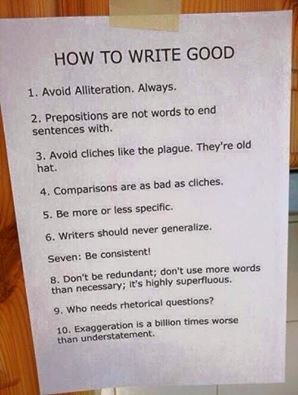
Ah, yes. The art of writing good! I saw this picture on Facebook and felt compelled to post it on my site. We are all guilty of making these errors, some more than others, some more often than not.
My brother, editor extraordinaire and part-time literary philanthropist, burns me on No. 1 and No. 10 all the time. Although he is a bit of a sadist when it comes to my writing (and a very cruel person most other times), he’s right 98.34% of the time.
If I could add my two loonies’ worth of advice when it comes to writing goodly and sharp, I’d say:
11. Keep it simple, stupid – less is more
12. Capitalization is cool – uppercase characters are very upper class.
13. Shortened, truncated, apostrophe-less words are for boors – if u think yer kool wrtng like this, u should head strate to yer nearest hospital and get an mri (DO NOT PASS GO, DO NOT COLLECT $200)
14. Good spelling is like good hygiene – if you spell poorly, you most definitely smell bad
15. Please, for all that is good and just in this world, reread what you’ve written at least once before texting/emailing/writing – you’ll always catch something the second time through a sentence or paragraph


August 17, 2015
A Book-sized Hole in my Heart
“Whenever you read a good book, somewhere in the world a door opens to allow in more light.”
The author Vera Nazarian wrote that and I like it. Conversely, when you read no book at all, the world becomes a little darker, the heart more benumbed.
I feel ashamed to say I have fallen into the latter category recently and it has killed tiny little pieces of me. There’s always an excuse not to read. Ergo, there’s no excuse not to read, says I.
And it hurts.
It hurts in that way every reader knows – it’s lightless, vapid, and cold.
What is it about the reading experience that so many of us identify with and cling to as if sustenance, I wonder. They are, after all, just words. I like what Alberto Manguel said about this subject:
I can understand that there are those who can think and imagine the world without words, but I think that once you find the words that name your experience, then suddenly that experience becomes grounded, and you can use it and you can try to understand it.
For me, the word I keep coming back to is solace. Reading is inner bliss. It is the soul steadied on the most unsteady waters of our everyday lives. And not to have read for so long has left a book-sized hole in my heart.


July 5, 2015
Bilinguals Have More Fun
Oh, if only translating a language were as easy as hitting a computer key! (Sorry, Babelfish and Google Translate. You guys only serve as evidence that professional translators have nothing to worry about with job security for a long, long time.)
In an article posted on the World Economic Forum’s website entitled “How the language you speak changes your view of the world,” Panos Athanasopoulos, a professor of linguistics and English language at Lancaster University, provides empirical proof of how bilinguals are way cooler than monolinguals. Or something along those lines.
Although the article Mr. Athanasopoulos penned highlighted tests carried out on UK and German citizens who spoke one or both of each other’s native languages (with a brief mention of Hebrew and Arabic speakers), the lessons derived from the results – in my humble opinion – can be transferred to other language speakers around the world.
Let me begin with the conclusion of the article: “So the language you speak in really can affect the way you think.”
Okay. Obviously not rocket science.
He goes on to cite what to non-grammarians might see as pedantic observations, such as structural differences in grammar construction (the use of present continuous for English speakers and the simple present tense in German speakers). However, the more interesting remark came in what he refers to as “worldviews,” native English speakers being more action-oriented (“a man is cycling”) and Germans being more “holistic” and goal-focused (“the man cycles towards the supermarket”).
Mr. Athanasopoulos goes on to add:
When judging risk, bilinguals also tend to make more rational economic decisions in a second language. In contrast to one’s first language, it tends to lack the deep-seated, misleading affective biases that unduly influence how risks and benefits are perceived. So the language you speak in really can affect the way you think.
It was this next part, however, which caught my attention:
People self-report that they feel like a different person when using their different languages and that expressing certain emotions carries different emotional resonance depending on the language they are using.
I first wrote about this idea in a short story (NOTE: falling rocks and shameless self-promotion ahead) called “The Language of Love,” in which the protagonist, a native English-speaking Canadian, struggles to say “I love you” in English to his girlfriend of many years even though he’s comfortable using the Japanese equivalent, daisuki.
True, I tend to think about language a lot in my free time , but these days I’ve been thinking a great deal about the word “love” in particular. When I first learned the word sarang (“love”) in Korean, I naively used it EXACTLY like I would in English. Yet more often than not, I found Koreans wincing (i.e. not laughing or seeming confused) when I said things like “I love kimchi!” or “I love books!” or “I love singing at singing rooms with my amazing singing voice!”
Koreans would inevitably tell me how you can’t use sarang with those objects or situations. Fair enough, I thought; I’ll use it exclusively with human beings. But then I started doing corporate translation work and inevitably companies would say things to stakeholders like “Thank you for LOVING! our company this past year” and “Your L-O-V-E of and interest in our company is sincerely appreciated.”
It made no sense, and in many ways still doesn’t to me. And therein lies the mysterious allure of languages. As with love, they will remain a riddle locked inside an enigma and shrouded by nebulous clouds of wickedly complex wickedness – and, of course, failure and frustration.
At the same time, I like love to think that language acquisition and the pursuit of love share something else in common: a new and renewed sense of wonder, hope and passion. Or, as Mr. Athanasopoulos points out:
Going back and forth between languages appears to be a kind of brain training, pushing your brain to be flexible. This mental flexibility pays big dividends especially later in life: the typical signs of cognitive ageing occur later in bilinguals – and the onset of age-related degenerative disorders such as dementia or Alzheimer’s are delayed in bilinguals by up to five years.
Thus, the conclusion we can draw here is clear: If you speak more than one language and you love fiercely, you will live forever.
Amen.



